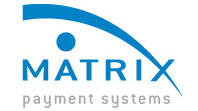August 26, 2007
Congress grills warring parties on interchange
Congress grills warring parties on interchange
Email the Editor | Send this Article to a Friend | Print this Article
 rying to keep an open mind, without rushing to any judgment, it doesn't look so good for the credit card companies," Rep. John Conyers said by way of opening a July 19, 2007, U.S. House of Representatives Judiciary Committee hearing on interchange.
rying to keep an open mind, without rushing to any judgment, it doesn't look so good for the credit card companies," Rep. John Conyers said by way of opening a July 19, 2007, U.S. House of Representatives Judiciary Committee hearing on interchange.
Conyers, D-Mich, is Chairman of the committee's Antitrust Task Force. He suggested the issues at hand boil down to whether interchange fees are increasing too rapidly and impose unfair costs on consumers, and whether credit card companies are engaged in anti-competitive behavior.
Interchange is the fee paid to a cardissuing bank by the card-acquiring (or merchant) bank. Interchange rates, a percentage of sales as set by Visa U.S.A. and MasterCard Worldwide, vary by retail sector, type of card, transaction amount (large-dollar versus small-dollar) and authorization procedure.
John Buhrmaster, head of the First National Bank of Scotia, spoke against interchange regulation on behalf of the Independent Community Bankers of America. Timothy Muris, of O'Melveny & Myers LLP also voiced opposition to government intervention.
Mallory Duncan, of the National Retail Federation, advocated for interchange regulation. Duncan was joined by Edmund Mierzwinski, of the U.S. Public Interest Research Group, and Steven Smith, head of KVA- T Food Stores Inc. and Chairman of the Food Marketing Institute's board of directors.
Laissez faire?
Acknowledging that the fees have increased in recent years, Buhrmaster and Muris each testified that the fees are simply part of the normal cost of doing business.
Customers get the convenience of having a line of credit in their pockets. Merchants do not have to set up in-house credit programs.
And small banks benefit because they can participate in the system and "stand toe-to-toe on both the issuing and acquiring sides of the business," Buhrmaster said.
Imposing pricing controls on such fees, Muris said, would stifle the market, limit the products credit card companies offer and hurt consumers.
Time to step in?
Those in favor of government intervention said the card Associations' interchange fee practices constitute monopolistic, antitrust behavior that harms merchants and consumers alike.
Duncan denied that the retail industry is seeking price controls. He said the problem is that interchange fees have risen rapidly in a process that is hidden from merchants and customers.
"This market is broken," Duncan said. "It needs transparency and genuine competition. Currently Visa and MasterCard do not battle for merchants. They battle to get banks to issue their cards. It is the only market in which competitors compete by raising prices," in order to entice banks to issue their cards.
No quick fix
Buhrmaster said the market is competitive and that merchants are free to do business with the card Associations, make deals elsewhere or even to refuse credit cards altogether. He cited Costco, which only accepts American Express Co.-branded cards.
Smith replied that accepting Visa- and MasterCardbranded cards isn't optional: Since credit card use now accounts for 60% to 65% of consumer purchases, and the card Associations control 80% of credit card transaction volume, retailers cannot refuse to accept their cards. Smith also said that while other costs of doing business are negotiable, interchange fees are not.
Conyers said several more hearings would be necessary before a resolution could be found.
The ETA weighs in
Jim Baumgartner, President of the Electronic Transactions Association (ETA), and the ETA's government relations staff met with senior House Judiciary Committee staff before the hearing.
"We took the opportunity to press for one of the key tenets of the ETA's 2007 Industry Relations Policies that supports private sector governance of interchange and opposes any government effort to regulate or establish price controls on interchange rates," Mary Dees Griffith posted on GS Online's MLS Forum. Griffith, President and Chief Operating Officer of Preferred Health Technology, chairs ETA's government relations committee.
The ETA's complete policy positions are online at www.electran.org/docs/ir/Policy_Positions_FINAL.pdf.

